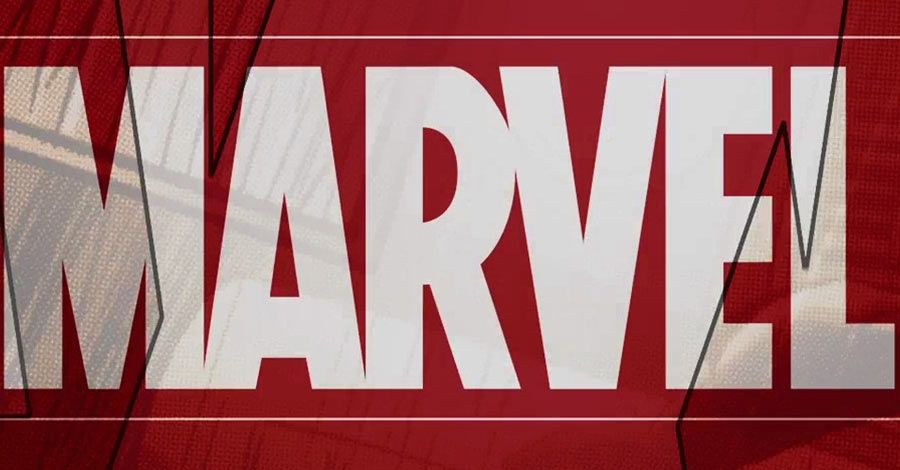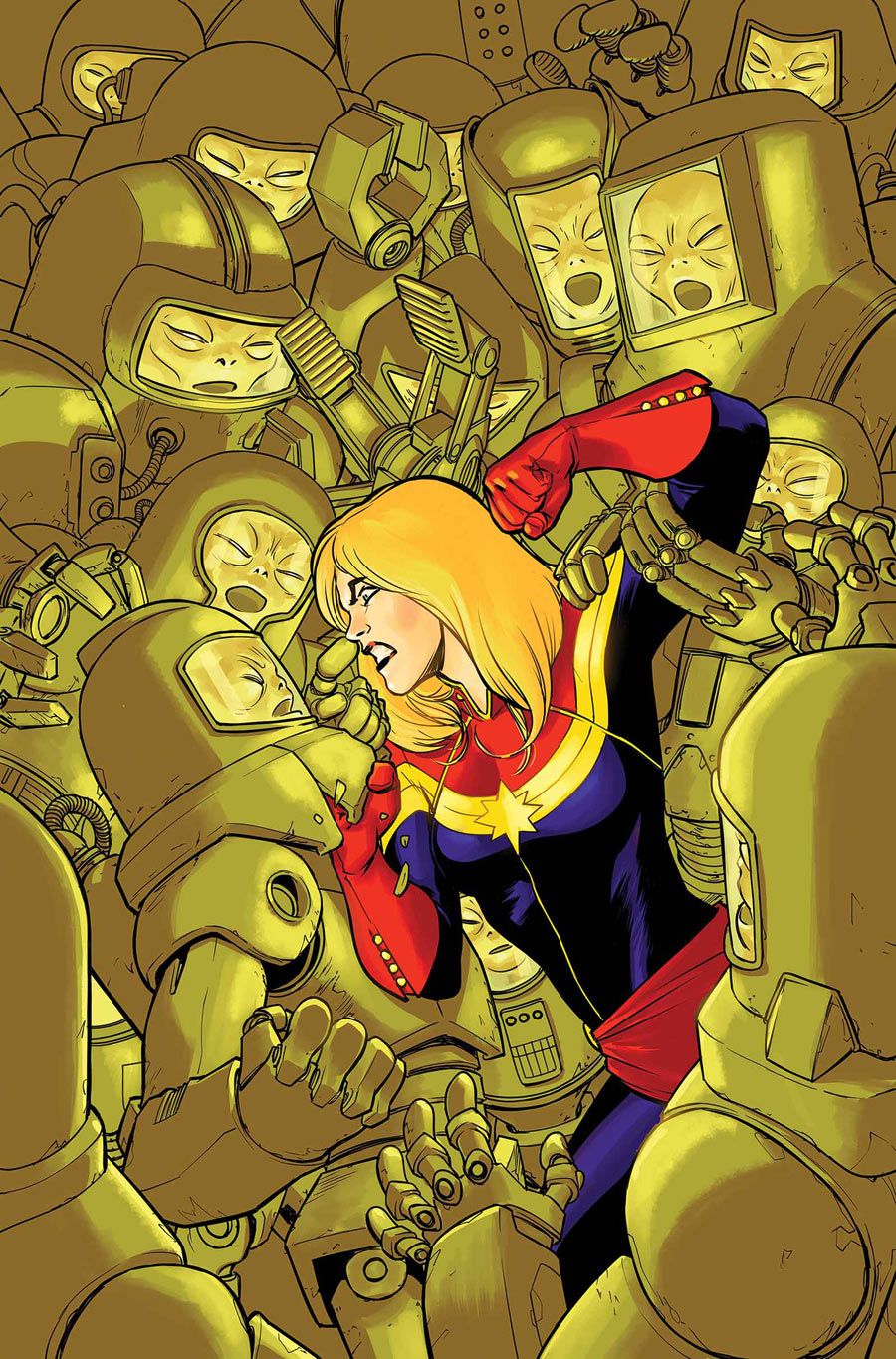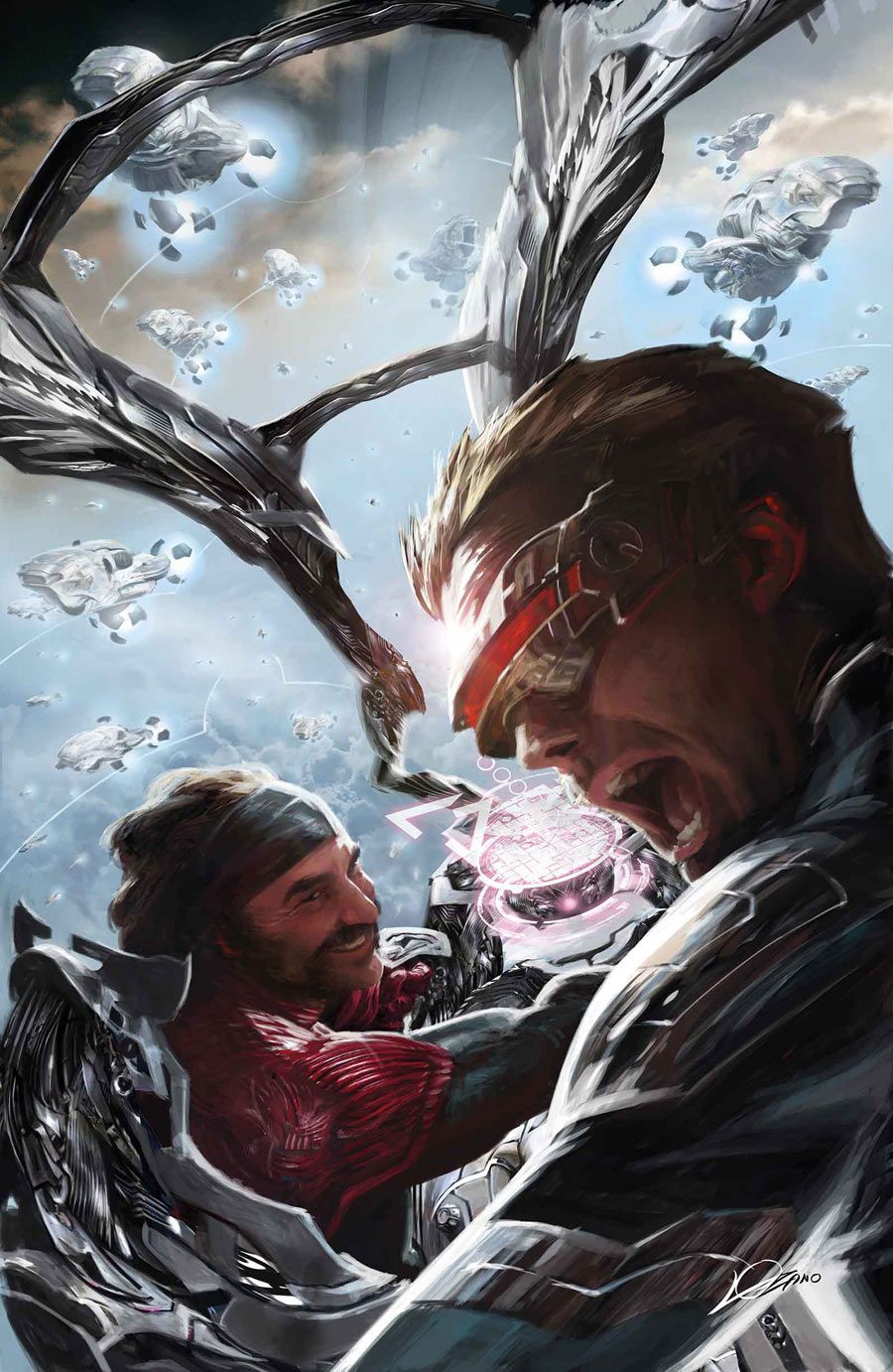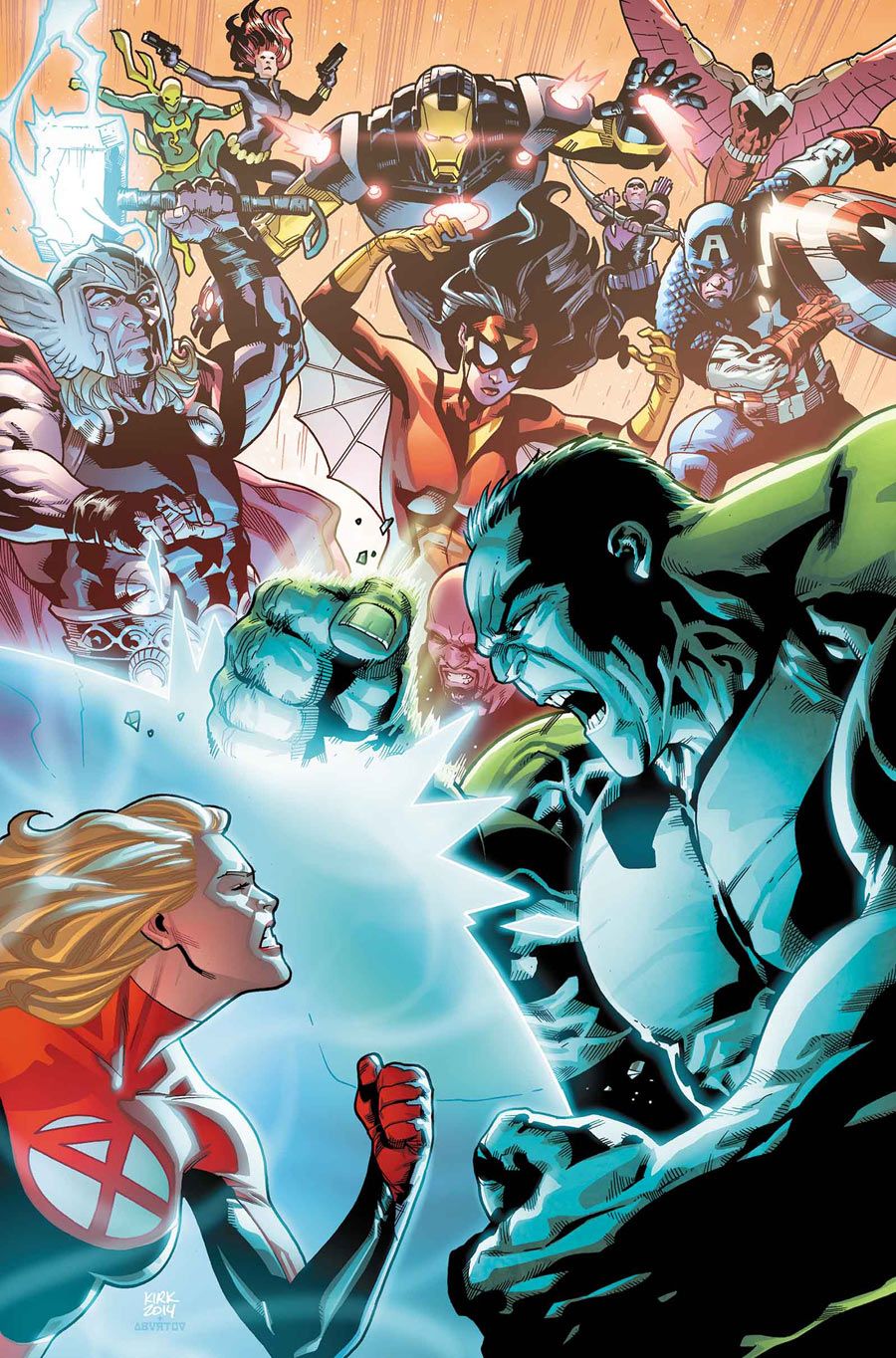Sunday morning at Anaheim's WonderCon 2014 found tired but determined fans flocking to the "Breaking Into Comics The Marvel Way" panel. Featuring editor and moderator Sana Amanat, Kris Anka ("X-Men"), Kelly Sue DeConnick ("Captain Marvel"), Richard Isanove ("Savage Wolverine") Marjorie Liu ("Astonishing X-Men"), James Robinson ("Fantastic Four"), Sam Humphries ("Cyclops") the panel began as the panelists made fun of Mark Waid ("Daredevil") who was supposed to participate, but was sick.
"You can shame him later," Amanat said, eliciting laughs from the audience. Introducing the creators on the panel, she also plugged Liu's prose work, asking the writer to share the plot of her latest novel.
"An elderly dominatrix thinks someone is about to kill her and ropes in her Iraqi vet daughter to help -- so, quirky," Liu said to more audience laughter.
"I actually resent you contacting my mother for this," Robinson said, causing Liu and the audience to crack up again.
Amanat asked the entire panel how they got their first gig in comics. Humphries told the room he had tried to break into comics for years with scripts and screenplays "the worst way to show you can write comics," he said.
"I figured, if this is going to be the last year of my career I'm going to go out as big as possible," Humphries added, pausing as Waid walked in.
"My advice for breaking into comics is don't be late," Waid joked as the audience and panel laughed.
Humphries explained that he self-published a comic called "Our Love Is Real," about a cop who was in love -- and in a sexual relationship -- with a dog. He sent a copy to Marvel editors Axel Alonso and Steve Wacker, and in turn they contacted him to work for Marvel.
"I remember you telling me about it and I was like, don't do it!" DeConnick recalled as Humphries laughed.
"I didn't want to do some typical high-concept comic that blends two things; I wanted to -- show off my sensibilities, for better or worse," Humphries said.
"I think the other lesson we learned is, don't let Sam write 'Pet Avengers,'" Robinson joked.
Robinson explained that he went to film school, but wrote a comic book called "London's Dark" which got the attention of creators Matt Wagner and Archie Goodwin, which in turn led to meetings with DC Comics and Waid, who was an editor at the time. Robinson's advice to the audience was to give editors copies of their self-published comics and follow up after conventions in case the editors lost or threw away their work in the chaos of traveling.
When Amanat asked the panel if they had wanted to write comics since childhood, only Waid and Isanove raised their hands in the affirmative.
For Waid, the first hint of his passion came, "when I was four years old and saw Adam West on my TV screen." He left home at fifteen and did not have any close family or role models, noo any notion of what his life would be like, month to month. It was then that a teenaged Waid saw "Superman: The Movie."
"I came out of that movie after seeing it twice in a row, knowing, whatever the rest of my life had to be, it had to have something to do with Superman and it had to have something to do with comics. Because that moment, of being a directionless teen in a theater, all alone and bonding with this character, even though he was a fictional character, bonding with this character who didn't care who you were or whether you were black or white or rich or poor, that touched me," Waid said. "Coming out of that movie theater, I knew that was my passion."
"It's interesting to me that didn't bring you to cinema," DeConick remarked.
"It wasn't the cinema, it was the character," Waid replied. "The anchor was Superman."
"I'm glad it wasn't Lex Luthor," Robinson joked.
DeConnick, for her part, laughed and told the room, "I think I'm still in denial that I work in comics."
"You were just nominated for an Eisner!" Waid shouted as the audience whistled and applauded. DeConnick explained that she was an Air Force brat and spent her childhood reading American comic books as she grew up on various military bases. However, it wasn't until she began hanging out on the Warren Ellis forum as an adult that she began to think about making comics.
Speaking from the artist's perspective, Isanove explained that he became an artist and colorist in France where, "comics were not that respected."
"One day I stumbled onto Spider-Man and was blown away," Isanove said, adding that he could only find Marvel comics in France, not DC. "In France, as long as you succeed, you can stay in school as long as you like, so I was 26," he said with a laugh. He transferred to CalArts in Los Angeles to study animation when a friend helped hook him up with an inking job at Top Cow. From there, Isanove learned how to use Photoshop and how to color on a computer.
"My advice is to stay in school and just wait," Isanove said, laughing.
Artist Steve Lieber ("Superior Foes of Spider-Man") then joined the panel, sheepishly waving as the other pros laughed at him. "I broke into comics with my reputation of always being on time," Lieber joked.
Touching on how important art school can be for artists, Lieber explained that he studied fine art and comics art but, "I don't recommend a formal comics education for everybody."
"CalArts didn't teach me anything," Anka joked. The artist, who originally went to school for animation, fell into comics while working as an animator for Nickelodeon when editor Nick Lowe asked him to work on the X-Men.
"Nick was like, do you want a contract? And I quit Nickelodeon that day," Anka said.
Liu said she wanted to be a novelist but felt it wasn't practical, so she studied to become a lawyer --and then ended up selling her first book before passing the bar.
"I met with my agent, it was Halloween, her son rolled up and he was dressed as Spider-Man. I was like, 'I love Spider-Man! I love X-Men!'" Liu said. Her agent revealed she had contacts at Marvel where, at the time, they were publishing novels set in the comics universe. Liu wrote "X-Men: Dark Mirror" for that line, which would eventually lead to her first comic "NYX" and establishing herself at the publisher.
"I was at the right place at the right time, awwing at the right kid," Liu said.
"The biggest note that I can give is just be put together and professional and laid back, and don't worry about it. Let your work speak for yourself," Amanat added, from her point of view as an editor.
"There is another way of getting into comics -- it certainly worked for me," Waid said, taking the microphone back. "I started working in the fan press. I started working at something called 'Amazing Heroes,' which for those of you who know, was like Comic Book Resources, except they used to print it out of big pieces of paper." He cited this work on the fanzine as what got him in the door as a professional, leading him to a job as an editor at Fantagraphics and then DC Comics.
Robinson agreed that editing can be a way into writing, citing current "Batman And..." writer Peter Tomasi, who was Robinson's editor on "Starman."
Amanat told the room she became an editor after she lost her publishing job and was "desperate." Hired by ex-Marvel editor Mackenzie Cadenhead for an independent publishing company, Amanat described Cadenhead as a mentor and cited that relationship as instrumental to her staying in comics.
Opening the floor to questions, a small press creator who worked for Waid's Thrillbent line asked what was the best way to make sure editors saw an aspiring creator's work.
"Marvel only looks at published material," Amanat said.
Waid countered that the advice he gives aspiring creators has changed with the rise of digital distribution. "Webcomics has become more and more a fertile ground for finding people in this industry," Waid said. "As an editor or publisher, seeing if you have a body of regular webcomics work proves to me -- that you have a work ethic."
Amanat clarified that webcomics counted as self-published for Marvel but that the publisher did not want to see just drawings or a script devoid of any other context.
"Links are fantastic!" Amanat agreed, suggesting that if creators want to send their work, they should throw it online first. "It's hard to peruse the comics racks sometimes -- so send links."
Lieber also suggested creators send links to their portfolios and not their personal blogs.
The next audience member asked how the industry's landscape had changed over time. "A week is the standard now to color a book, so that makes a big difference. I was lucky to come in at a time when there was time to learn; now, you have to hit the ground running," Isanove answered.
"You have to start at a point where you know you're not going to get a lot of money to begin with," he added.
"Writers get tons of money," DeConnick joked as the writers on the panel laughed.
Liu agreed with Isanove that the main change for creators was that publishers have begun demanding everyone worked at an "increased pace," with diminishing breaks between deadlines and assignments. "You're going to have to work very fast and maintain your quality."
"When we were getting in, comics were still seen as nerdy things -- and now its become this hip thing with the movies, so there's a different type of person trying to get into comics now, and that makes it harder," Robinson added.
The same fan asked what secondary passions the creators bring to their work. DeConnick cited her theater degree as an influence to her writing, while Humphries thought secondary passions were key to creating interesting comics, and those who were only passionate about comics turns out "insular" pieces.
Another audience member asked how Humphries approached self-publishing. The writer said the only thing he did not do was to distribute through Diamond, but he did everything else, from going to individual stores with copies of his one-shot to mailing and emailing it to everyone he knew in the industry.
A woman dressed as Loki asked for the best or worst advice they had gotten.
"Never let an employer know something is easy! Best advice," Lieber joked.
"Someone told me to not work in comics -- screw you guy, you know who you are!" Amanat added as the room laughed.
A fan asked about the difficulties of staying in comics, explaining that he felt stories of older creators having to crowd fund their health costs were becoming more and more common.
"Diversify," Liu suggested, adding that she always felt made sure she had a career to fall back on, lawyer first, and then as a novelist. "Own your work and plan ahead, because this is a hard career and the good times don't last forever."
"Don't marry another freelancer," DeConnick, who is married to writer Matt Fraction, joked. She agreed with Liu that creators should make sure to always work on creator-owned projects as much or more than licensed properties. "Marvel, the people, love me, but Marvel, the thing, doesn't and doesn't care if my kids go to college," DeConnick said, clarifying she did not mean any slight against the company.
"Sign up for health insurance," Humphries joked.
Waid told the next audience member that he found it always preferable for writers to submit work with artists, even if they were bad or slow, because the quality of the art doesn't matter if the writing is good. "If I like you, I'll take shears and separate you two."
The last question came from a teenager who asked if there were age requirements for Marvel to hire a person as either writer or artist.
"I believe you have to be over 16," Amanat said, then laughed and added, "Don't quote me on that -- I'm not a lawyer!"
"What about that kid who wrote 'Axe Cop' and makes more money than I do?" Waid asked as the panelists and audience laughed.




